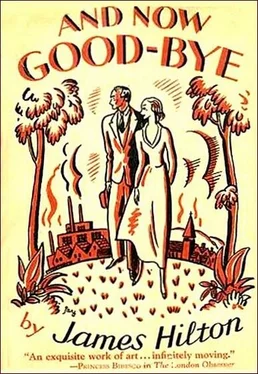His eyes, accustoming themselves to the dimness, observed the shrivelled cheeks and piercing eyes that confronted him from the head of the bed. “Good morning, Miss Monks,” he began, stooping slightly. His greeting, rather huskily spoken, filled the room with its deep resonant tones—he had a magnificent voice (Ringwood had once said—“It’s so damned easy to listen to you talk that one sometimes doesn’t bother what it is you’re saying”—and he had never felt quite the same about his own words after that). The neighbour passed him a chair and whispered loudly in his ear: “Doctor says she won’t last out the day.”
“Ah,” he answered vaguely, seating himself at the bedside and gazing at the subject of this despairing prophecy. He was, he was aware, a little terrified by Miss Monks. He was just wondering whether she were fully or only partly conscious when she startled him by croaking suddenly: “Very poor attendances there must have been at chapel yesterday, Mr. Freemantle.”
“Yes,” he admitted, fidgetting under her glance. “The weather, you know, was most unfortunate. I suppose one really can’t expect people to turn out in thick fog.”
“In my young days people wouldn’t have let that keep them at home on a Sunday.”
It was her favourite theme, and he gave her the cue she wanted. “Ah, Miss Monks, I’m afraid this is a slacker generation altogether.”
She talked for a few minutes as she enjoyed talking, and as he knew she enjoyed talking. The conversation touched upon the question of Sunday games in the parks (soon to come before the Borough Council again), and the forthcoming service on Armistice Day. She was, of course, a bitter opponent of Sunday games, and as for the Armistice Day affair, she had doubts as to the wisdom of those so-called ‘undenominational’ ceremonies, at which parsons of all creeds appeared together on a single platform. “Safer to keep ourselves to ourselves,” she declared, with a tightening of wrinkled lips.
After a time talking seemed to tire her, and Howat was just beginning to think he might decently take his leave when she whispered, with a kind of sinister pride: “Doctor says I won’t last out the day.”
“Oh, dear me, what nonsense!” The exclamation came out trippingly. “I’m sure Dr. Ringwood never said anything of the sort, and even if he did—”
“He did ,” she insisted, in such a way that further conventional protests found themselves checked at source. She added hoarsely: “Perhaps we could have a prayer together, Mr. Freemantle.”
“Why, certainly.”
And he bent his head into his hands (Miss Monks would have thought any more abject posture idolatrous) and began to pray. He felt a little unnerved by it all. It was so difficult to think of anything really suitable. What could you say to the Almighty by way of introducing an old lady of eighty-nine who was perfectly certain of going to Heaven and equally certain that Heaven was full of marble and white tiles, like a combination of underground convenience and fish-shop? And all the time he was speaking he knew too that Miss Monks was listening with the air of a connoisseur; she felt herself in no pressing need of his interpolations on her behalf—she was merely trying him, seeing what he could do, enjoying a luxury to which she considered herself entitled.
That, he felt, was the worst of being a Nonconformist parson—in the last resort people didn’t need you, they felt themselves able to get just as near Heaven on their own. Not that they probably couldn’t, but still, if they thought that, why bother to keep a parson at all? As some species of communal pet, perhaps. It was different in the Roman Church, where people really believed in priestly functions. And again, as often before, he wished there were some ritual for such occasions as this…What could he say, anyhow?…Yet, to his considerable surprise, he heard himself saying all kinds of things, quite eloquently and not at all insincerely; he really meant every word of them—the poor old creature was dying—there had been something rather grand and magnificent about her—he was stirred, touched, and aware that his voice was vibrating with emotion. And when at last he raised his head there were actually tears in his eyes.
“Thank you, Mr. Freemantle,” said Miss Monks rather in the tone of an examiner to a student who has done passably well in a viva voce .
He bade her a kindly farewell, and held her thin hand for a moment. The stuffy air inside the room (all the windows closed for the past dozen years, he guessed) and the smells of drugs and bedclothes made him feel a little faint. His throat too, was giving him pain again. After a few conventional courtesies to the woman who had shown him up, he descended the stairs and passed out gladly into the street.
Too late now to call on young Trevis; he had to sec Higgs the councillor, and there wouldn’t be time for both visits. He hastened out of Lower George Street and into the High Street again. Higgs was an optician, who had an office and consulting-room on the first floor of Bank Buildings, just above Phillips’s gramophone shop. He was a clever fellow, not yet thirty, the youngest and in many ways the ablest of the local Labour Party. Self-educated, he had worked as a mill-hand while studying for the examinations that entitled him to set up in business. He never attended a place of worship, but had once surprisingly turned up at a series of lectures Howat had given on music. The relationship between the two men was cordial up to a point, and then sharply antagonistic.
Howat felt still somewhat exhausted as he walked along the passage by the side of the gramophone shop, and climbed the stairs to the first floor. He rang the bell and Higgs himself answered it. “Oh, Hullo, Freemantle—glad to see you—do come inside.” Howat did not in the least mind being called Freemantle’ without the ’Mister ’—indeed he rather preferred it—but he could not help reflecting that at Higgs’s age he should never have had the nerve to leave out the prefix with a man nearly twice as old…Nerve, that was it—and Higgs had plenty of it. Cool-headed fellow climbing steadily up the ladder which began with a seat on a local council and ended, quite possibly, at Westminster. He was determined to get on in the world, and Howat liked him for it.
“Good morning, Higgs. I hope I’m not interrupting—I thought I’d better call where I’d be sure of finding you.”
“Quite right. Do take a chair. I’ve an appointment in ten minutes, but I daresay he’ll be late.”
“Well, I don’t suppose my business will take more than the ten minutes in any case. I only wanted to know the plans for the Armistice Day service.”
“Ah, yes. There’s been the usual fuss about it, you know. Or perhaps you don’t know. Doxley of the Congregationals thought it was unfair for the Baptist fellow to be given the opening prayer two years in succession. So we’ve given him the opening prayer instead. The Vicar of the Parish Church, of course, does the address—that seems to be generally agreed upon. Then there’s the second prayer—Salcombe rather wants that. Unfortunately that means you’ll have to take the hymns, as you did last year and the year before. I don’t know how you feel about it—if you object, then Salcombe will have to take his turn with the hymns, whether he likes it or not, only he’s not so good at the job—fusses with the tuning-fork for about five minutes before he can get the note—I daresay you’ve seen him.”
Howat smiled. “I don’t mind what I do—I’ll fit myself in just wherever’s convenient. As it happens, I have absolute pitch, so I don’t need a tuning-fork.”
“Absolute pitch? What’s that?”
One thing in Higgs that always especially attracted Howat was his eagerness to assimilate any casual scrap of knowledge that might come his way. He answered: “It means that if I want a certain note—middle C, for instance—I know it, instantly, without having to think. Nothing very unusual a good many people can do it.”
Читать дальше











